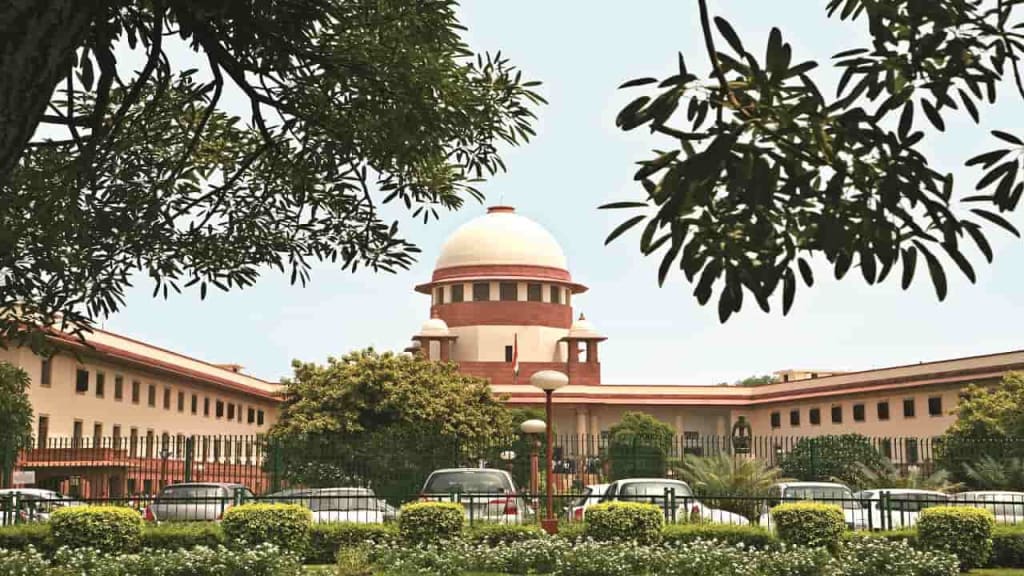The Supreme Court's Role in Unraveling the Complexities of the Manipur Conflict
3. Safeguarding Human Rights

The Supreme Court's Role in Unraveling the Complexities of the Manipur Conflict
The Manipur conflict, marked by its historical, ethnic, and socio-economic intricacies, has captured the attention of observers and analysts for many years. Amidst the turmoil that this conflict has generated, the Supreme Court of India has emerged as a pivotal player in addressing the multifaceted challenges posed by the situation. This article explores the involvement of the Supreme Court in untangling the complexities of the Manipur conflict and its endeavors to foster justice, peace, and resolution.
1. Legal Examination of the Conflict
The Supreme Court has assumed a crucial role in dissecting the legal dimensions of the Manipur conflict. The court has encountered a series of cases related to human rights violations, extrajudicial killings, and allegations of excessive use of force by security personnel. These cases have spurred the court to scrutinize the actions taken by both governmental and non-governmental actors, ensuring a sense of accountability while upholding the principles of the rule of law.
2. Upholding Accountability
One of the primary functions undertaken by the Supreme Court has been to reinforce accountability for violations of human rights and acts of violence perpetrated during the course of the conflict. The court has been attentive to instances where allegations of disproportionate use of force and encounters have arisen. Its intervention has triggered investigations and inquiries, shedding light on the circumstances surrounding these incidents and holding those responsible answerable for their actions.
3. Safeguarding Human Rights
The engagement of the Supreme Court in Manipur extends to the safeguarding of fundamental rights and the preservation of human dignity among the affected populace. The court has consistently underscored that the utilization of excessive force by security forces is unacceptable. It has emphasized the notion that individuals retain their rights to life and personal liberty as enshrined in the Constitution. This stance has established significant precedents for safeguarding citizens' rights, even amidst conflict-ridden environments.
4. Active Judicial Participation and Oversight
The proactive approach adopted by the court concerning the Manipur conflict has played a pivotal role in upholding justice. It has demonstrated a form of judicial activism by initiating investigations, overseeing cases, and offering guidance to investigative bodies. This oversight has proven indispensable in thwarting the manipulation of evidence, ensuring equitable trials, and safeguarding the integrity of the justice system.
5. Catalyzing Conflict Resolution
Beyond addressing isolated cases, the Supreme Court has embraced a broader role in facilitating conflict resolution within Manipur. The court has actively advocated for dialogues, reconciliation, and the implementation of strategies aimed at addressing the root causes of the conflict. Its directives have galvanized governmental entities to adopt measures aimed at addressing grievances, fostering development, and nurturing an all-encompassing and harmonious society.
6. Striking a Balance Between Security and Rights
The involvement of the court in Manipur underscores its delicate task of maintaining equilibrium between the pursuit of state security and the protection of human rights. It recognizes the challenges confronted by security forces within zones of conflict. Nevertheless, it steadfastly underscores the importance of upholding the rights of individuals. This balanced approach is echoed in its judgments, which accord priority to justice while acknowledging the intricate nature of the situation.
7. Reinforcing Democracy and Rule of Law
The energetic involvement of the Supreme Court in Manipur resonates with its identity as the guardian of the Constitution and the champion of democratic values. By confronting issues stemming from the conflict, the court reinforces the notion that an equitable and inclusive society can only thrive upon the principles of the rule of law. Its interventions contribute significantly to reinforcing the democratic fabric of the nation.
Conclusion: A Beacon of Justice and Reconciliation
The role assumed by the Supreme Court in addressing the Manipur conflict extends well beyond the confines of legality; it personifies the ideals of justice, accountability, and human rights. Through its proactive and resolute stance, the court has sought to disentangle the intricate threads of the conflict, provide solace to victims, and contribute to enduring resolutions. As Manipur advances toward a future marked by stability and harmony, the engagement of the Supreme Court remains a symbol of optimism for the realms of justice and reconciliation.
________________________________________
Frequently Asked Questions (FAQs)
Q: What factors contribute to the complexity of the Manipur conflict? A: The Manipur conflict is characterized by historical, ethnic, and socio-economic intricacies, including resource disputes and cultural identity concerns, which contribute to its complexity.
Q: How does the Supreme Court contribute to conflict resolution in Manipur? A: The Supreme Court encourages dialogue, reconciliation, and strategies addressing the root causes of the conflict, fostering a more comprehensive and peaceful society.
Q: How does the Supreme Court strike a balance between state security and human rights protection? A: The Supreme Court recognizes the challenges faced by security forces while emphasizing the necessity of upholding individual rights, which is reflected in its judgments.
Q: What role does the Supreme Court play in upholding democracy and the rule of law? A: The Supreme Court's engagement in Manipur reinforces democratic values and the significance of the rule of law in building a just and inclusive society.
Q: How does the Supreme Court's involvement in Manipur embody its role as the guardian of the Constitution? A: The Supreme Court's proactive approach in addressing conflict-related issues aligns with its role as a protector of democratic principles enshrined in the Constitution.
About the Creator
Sameel Iqbal
I am expert in article and story writing






Comments
There are no comments for this story
Be the first to respond and start the conversation.